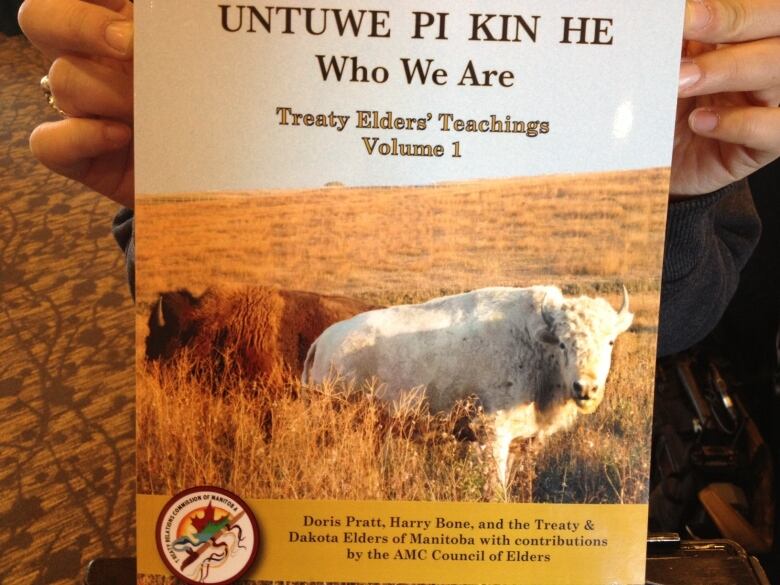Oral history book ensures aboriginal elders' stories live on
Extensive volume of Manitoba oral history 10 years in the making
More than 200 First Nations elders from around Manitoba want to make sure their stories live on.
Ten years in the making, Manitoba now has the first volume of First Nationsoral history, called Treaty Elders Teachings: Untuwe Pi Kin He (Who We Are).
It is the passing on of elders'knowledge, in their own words, forthe younger generations.
- Visit the new CBC Aboriginal website
- Nunavut Tunngavik launches oral history online
- Follow CBC Aboriginal on Twitter
These traditional oral teachings have beenwritten down to preserve partof FirstNations history
"When an elder passes away, if they haven't passed on that knowledge theyare taking a lot of knowledge with them,"Jamie Wilson, Manitoba's treaty relations commissioner, said Thursday.
This book is the first of four volumes, which will end up in classrooms throughout the province.

"There is an overwhelming urge to want to share their stories, stories that they heard themselves from their grandparents,"Wilson explained.
As many of the elders wanted to sharein their own languages,each story is written in English and one of five First Nations languages.
Anishinaabeelder James Cote shared the stories passed down from his grandparents. He'sproud those words will now teach the younger generations.
"They need to know.We need to tell them who they are and where they came from," saidCote.
The 73-year-old elder is a residential school survivor. Henever knew what it meant to be First Nations.
"We were not taught anything in regards to who we were, who we are today," he said.
"We weren't taught that.We were taught the famous reading, writing and arithmetic, but nothing aboutour treaties, nothing about who we really are."
Cote saidhe was angry for many yearsandtravelleddown the wrong path, but then he started asking for help.
"I had to find ways and means of finding my sobriety, and I did that with help of the elders," he explained.
As Cotebeganlearningthe teachings, he changed.He now passes those stories on to his own grandchildren.
"We aselders have to teach them that," hesaid.
Cote saidthe oral history books will help young people understand who they are for years to come,long after the elders are gone.













_(720p).jpg)


 OFFICIAL HD MUSIC VIDEO.jpg)
.jpg)



























































































